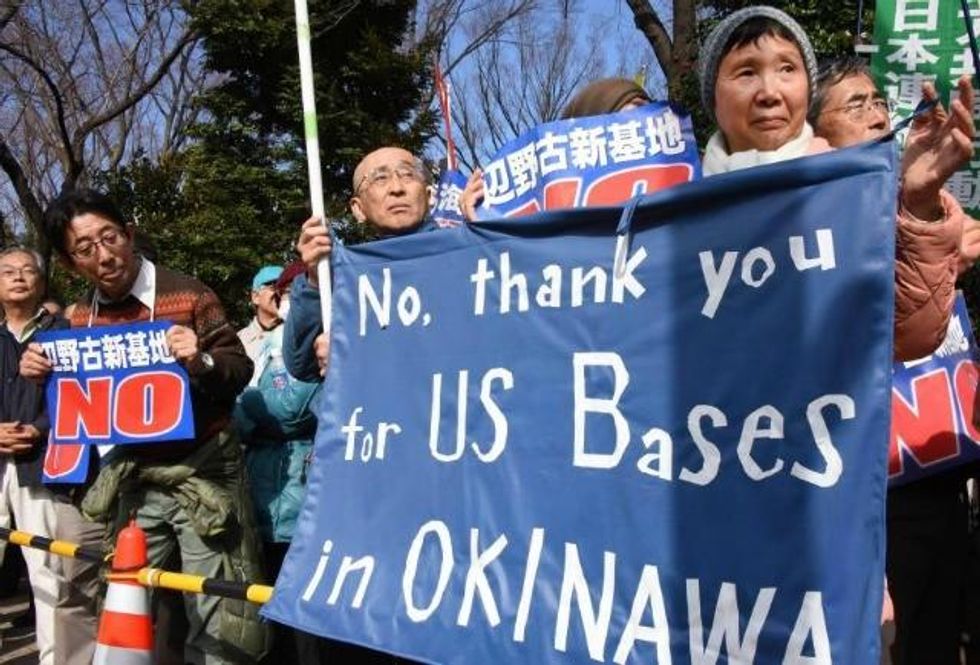Tens of thousands of protesters surrounded Japan's parliament on Sunday in the latest rally against the unpopular plan to relocate a U.S. Marine Corps base to Okinawa's northern coast, while simultaneous protests took place in the cities of Toyama, Okayama, Sapporo, Nagoya, and Osaka.
"Don't build the base," and "follow the will of Okinawa," shouted the protesters, according to Reuters and Business Standard. The protests took place in advance of Japan's upcoming parliamentary elections in July.
The plan to move U.S. Marine Corps Air Station Futenma from heavily populated areas to the island's less-populated Henoko coastal area of Nago was first proposed by the Japanese and U.S. governments 20 years ago, after a local 12-year-old girl was gang raped by U.S. service members.
"The central government is trying to force through landfill work to move the base to Henoko, but justice and righteousness are on our side," Nago mayor Susume Inamine told the Japan Times at the rally on Sunday.
Okinawa is home to over half of the 50,000 U.S. service members stationed in Japan, and residents have long resented the military's large presence on the small island. "Okinawa accounts for less than one per cent of Japan's total land area but hosts about 75 per cent of US military facilities in the country," reports the Business Standard. Okinawa officials sued the country's central government in December in their latest effort to halt construction of the military base.
For decades, locals have complained of accidents and crimes -- particularly sexual violence -- on the part of service members, as well as environmental contamination from the bases.
"In July [of 2014], the Japanese government unearthed 88 barrels containing ingredients used to produce Agent Orange in reclaimed land next to the Kadena Air Force Base," which is also located on Okinawa, wrote Christine Ahn, founding board member of the Korea Policy Institute and the National Campaign to End the Korean War.
Critics in the U.S. and Japan have also noted the threat that the proposed Henoko base poses to the endangered dugong, a mammalian relative of the manatee and an ancient cultural icon.
Also on Sunday, 5,000 high school students rallied in Tokyo's Shibuya district against the country's controversial new law that would allow its Self-Defense Forces to defend Japan's allies from attack, even if Japan itself is not under attack. The Japan Times notes that "[i]t is scheduled to take effect in March but has raised fears that Japan might be dragged into a foreign war."
View footage of Sunday's protests here:





